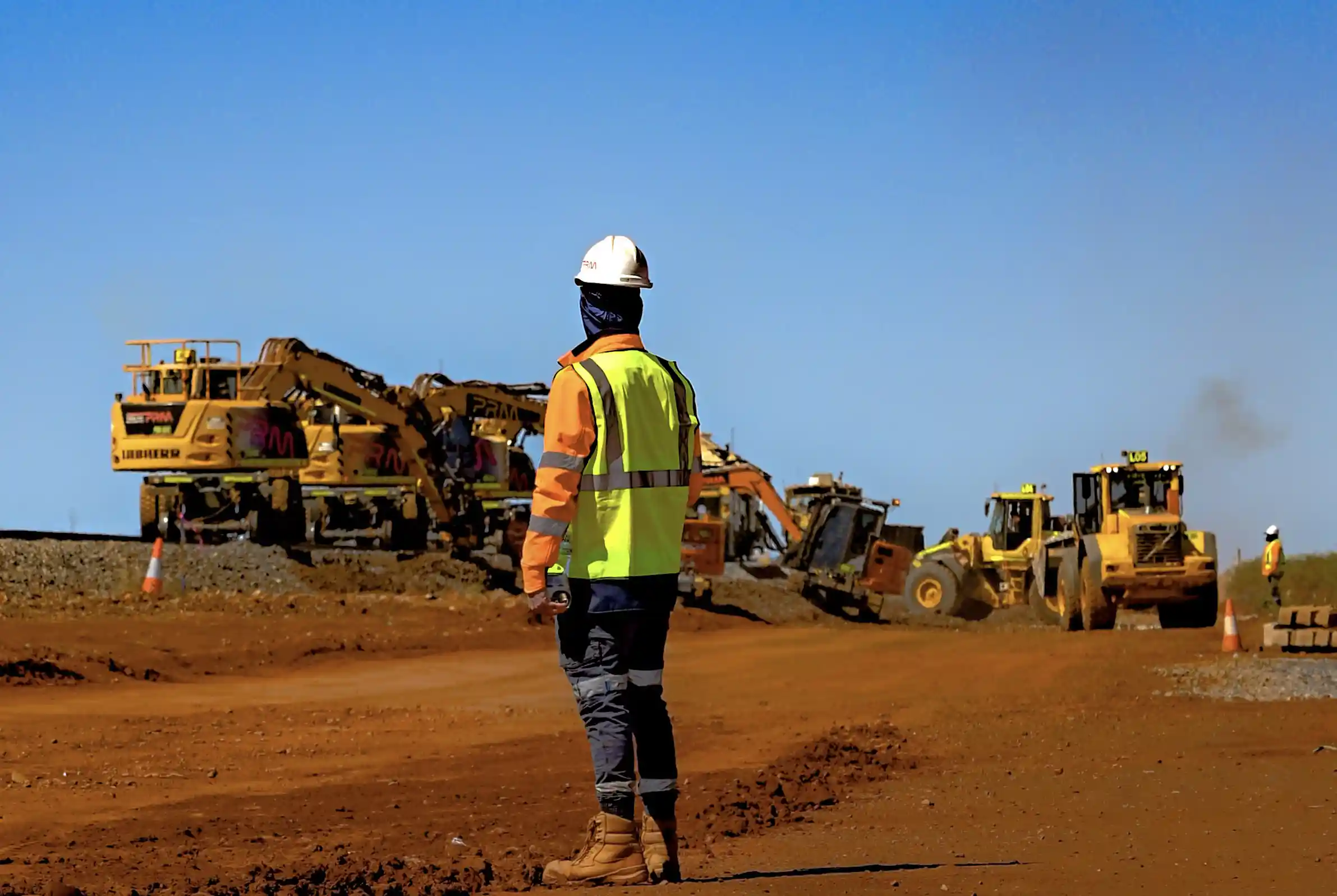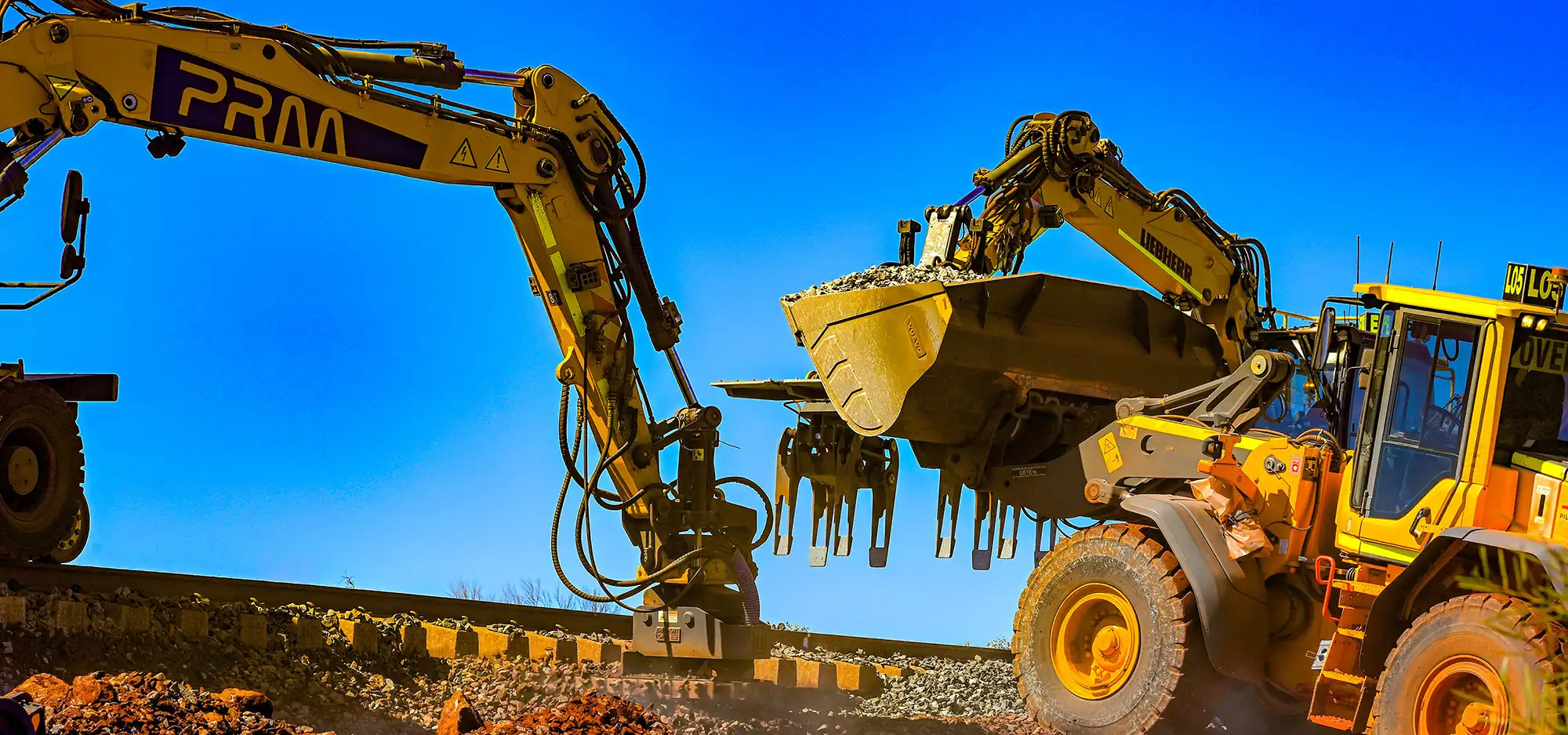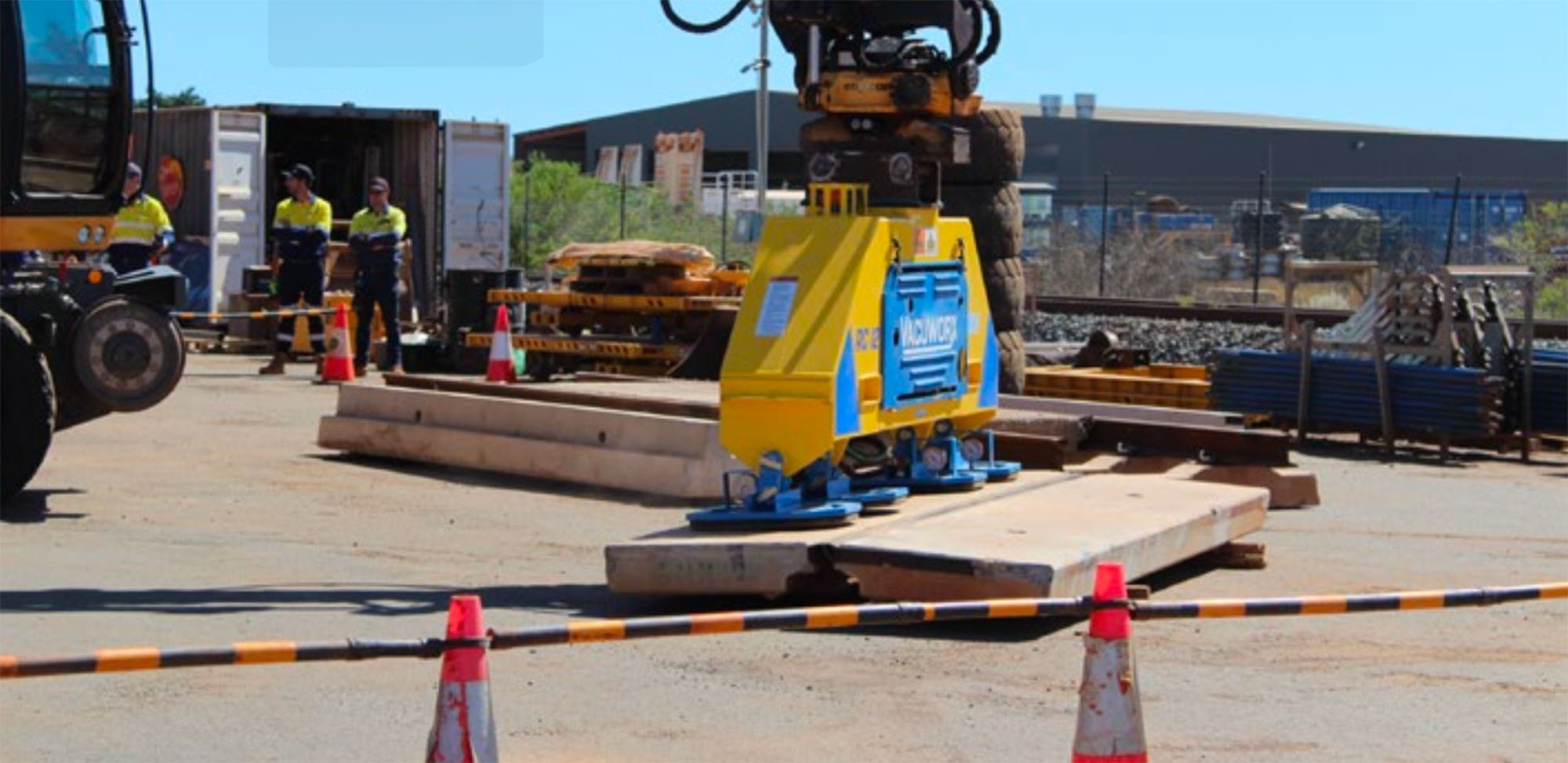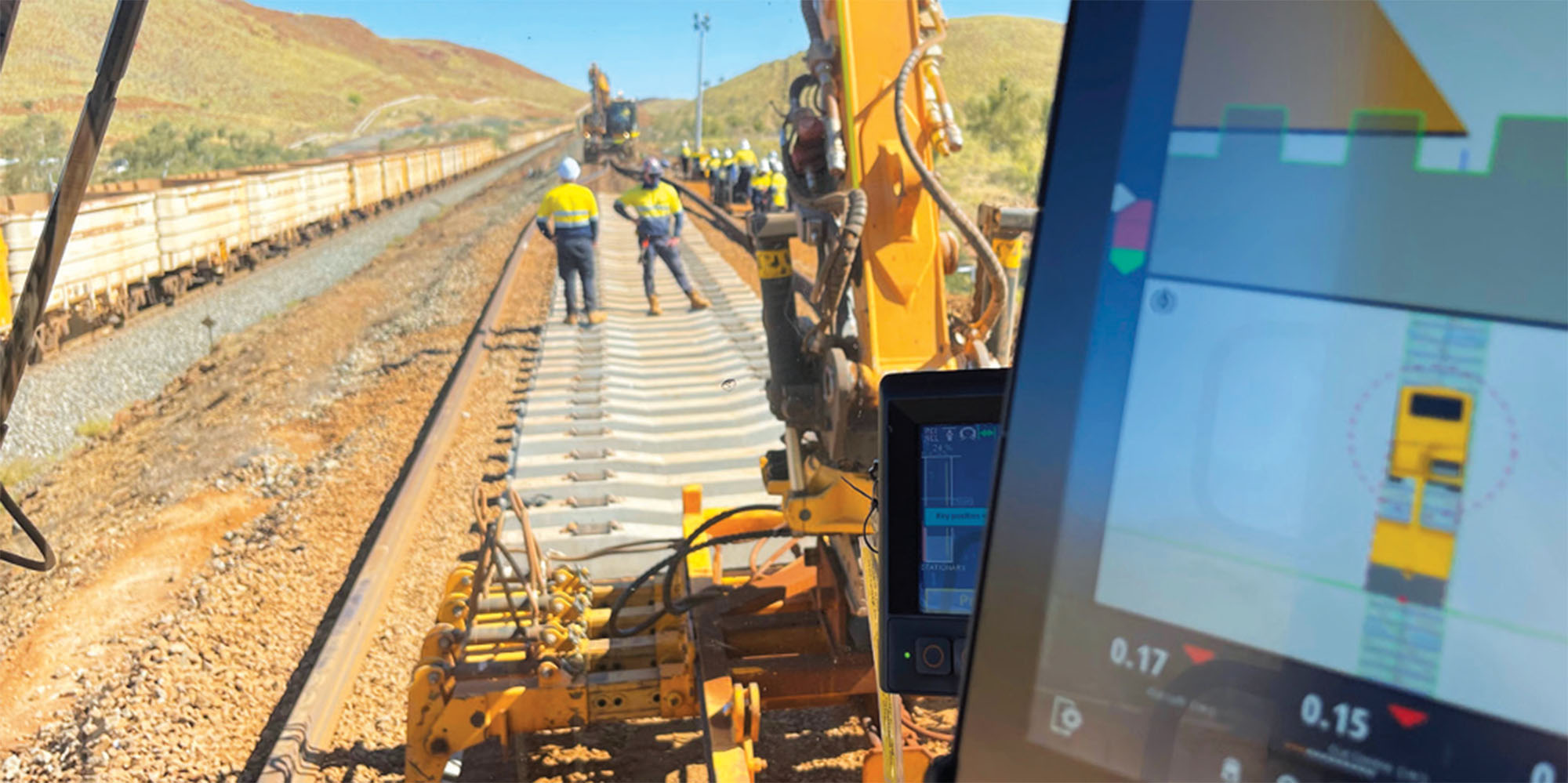Location
PilbaraWorks Delivered
Undercutting & Ballast RenewalTimeframe
July 2024 – August 2024The Challenge: Addressing Operational Inefficiencies on Heavy Haul Rail Networks
Pilbara Rail Maintenance (PRM) was approached to conduct a ballast renewal program on a heavy haul rail network for a mining client following a successful completion of a project the previous year.
The section of track faced significant operational challenges due to multiple traffic speed restrictions (TSRs), which led to increased port cycle times and affected production efficiency.
The primary challenge was to implement a ballast renewal process that minimised track obstruction while achieving substantial production targets within a limited time frame.
The Solution: Implementing an Innovative Top Down Ballast Renewal Methodology
PRM proposed a ‘top-down methodology’ for the ballast renewal project, designed to optimise production in smaller track obstruction windows.
After conducting a site visit and leveraging their extensive experience with ballast renewal programs across various rail networks, PRM planned a 3-week rotational period that included two weeks of shutdown followed by one week for preparation and cleanup.
Key elements of PRM’s solution included:
- Use of Specialised Equipment: By using specialised hi-rail excavators equipped with undercutter bar and tamping head attachments, our team effectively removed fouled ballast from beneath tracks while maintaining control over the undercutting and tamping processes. This method – which focuses on shorter 10m sections – minimises disruption to rail operations and reduces the risk of damage to the track formation.
- Low Impact Methods: In sensitive areas, the use of GPS-guided systems and accurate design files ensures further precision and preservation of the track formation. This approach is less intrusive than traditional ballast cleaning methods and allows for real-time adjustments based on contamination levels.
- Detailed Planning and Documentation: PRM provided comprehensive documentation prior to resource mobilisation, including a detailed methodology, staging diagrams, a cost schedule and all necessary compliance documentation.
- Achieving Production Goals: A critical target of renewing 1,000 meters of ballast within seven days was set. PRM’s approach not only met this requirement but also ensured that the track remained within 20mm of its original position before resurfacing began, and allowing a swift handover to mainline operations within 30 minutes if required by train control.
The Outcome: Achieving Production Efficiency and Minimising Disruption
This methodology proved to be a success, delivering several benefits:
- Enhanced Production Efficiency: PRM comfortably achieved the target of 1,000 meters of ballast renewal in the stipulated time, demonstrating the methodology’s viability and value to the heavy haul rail network.
- Minimised Tamping Effort: With the track level drop kept to a minimum, the tamping effort required to restore the track geometry is significantly reduced. Larger tamping efforts require longer TSR periods to allow adequate consolidation. The track structure is still considered to be in an unconsolidated state and as such consolidation is achieved easily.
- Shorter Track Speed Restriction Periods: Traditional undercutting methods often result in extended track speed restriction periods due to the significant changes in track geometry. However, the top-down methodology minimises these restrictions by maintaining track stiffness and reducing the overall impact on the track structure.
PRM’s commitment to understanding the needs of the network and client objectives reinforces their reputation as an industry leader in innovative railway maintenance solutions.


explore case studies

Vacuum Panel Lifter System Boosting Safety and Productivity
Seeking a more efficient solution for panel lifting, PRM invested in a VacuWorx vacuum system and customised it for rail works in an industry first.
Innovative GPS Sleeper Layer System Using Augmented Reality Software Revolutionising Rail Maintenance
In response to the challenges present in traditional rail sleeper laying techniques, PRM collaborated with operators, supervisors and engineers to design a revolutionary GPS-guided sleeper...